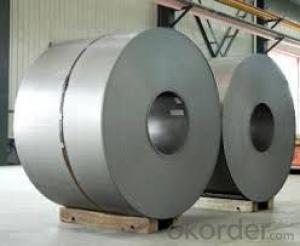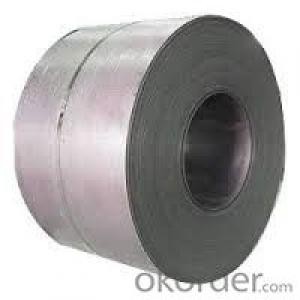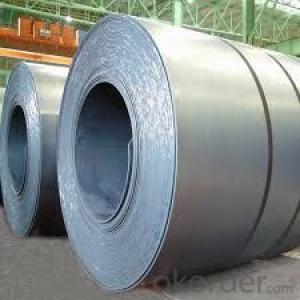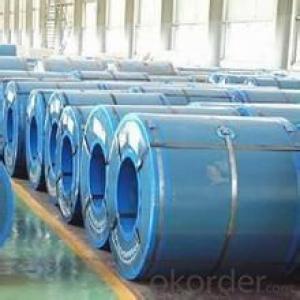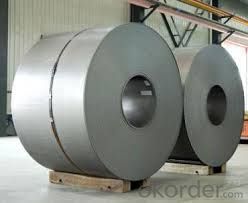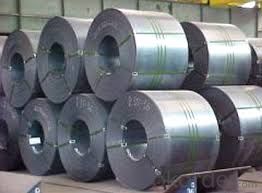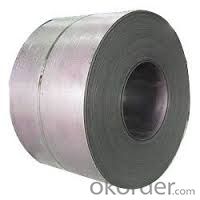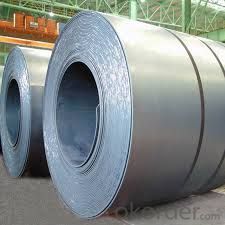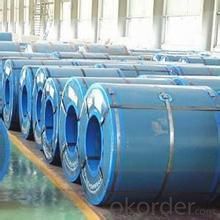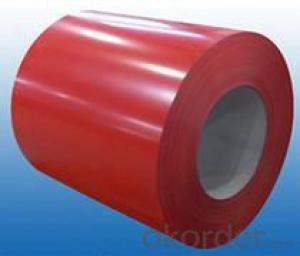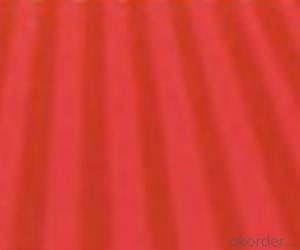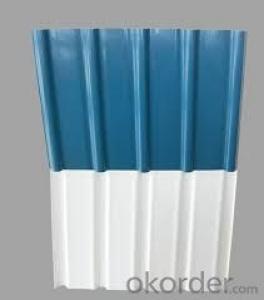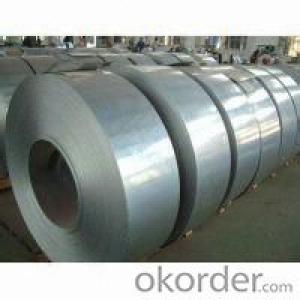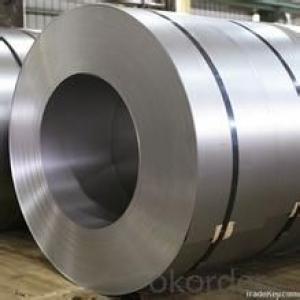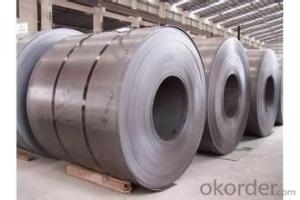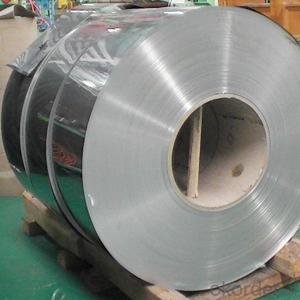hot rolled steel sheet DIN 17100 in Good Quality
- Loading Port:
- Tianjin
- Payment Terms:
- TT OR LC
- Min Order Qty:
- 30 m.t.
- Supply Capability:
- 500000 m.t./month
OKorder Service Pledge
OKorder Financial Service
You Might Also Like
Product Description:
Rolled to its final dimensions while it’s hot enough to scale, our hot-rolled steel is an amalgamation of the various qualities of steel. It can be in the form of plates, sheets and coils. Our Hot-Rolled Steel Sheets and Coils are applied to a wide range of uses such as automobile, electrical appliance, machinery manufacturing, container manufacturing, shipbuilding, bridge, pipeline, and receive high acclaim from our customers for its excellent quality.
Description:
Product: | Hot Rolled Steel Coils/Sheets |
Material: | Q195,Q235,A36,SS400,S235JR,Q345,ST37-2, CCSB etc |
Standard : | JIS G3002 GB/T251B |
Technique: | hot rolled |
Thickness | 1.2mm to 200mm |
Tolerance of thickness: | :+/-0.03mm |
Width: | 750mm-2000mm |
Tolerance of width: | :+/-5.00mm (aiming to +/-2.00mm) |
Normal width: | 914mm, 1000mm, 1200mm, 1219mm, 1250mm,1500mm |
Length: | According to requirement |
Coil ID: | 508mm-610mm |
Coil Weight: | 10-25 Metric Tons |
Surface: | Black, Chromate, fingerprint resistant treatment, slight oiled or non-oiled, dry |
Port of Loading: | Tianjin/Shanghai port |
Packaging Details: | Standard export packing or according to the clients required |
Delivery Time | Within 30 days after received 30% deposit or workable L/C |
Payment Terms: | L/C,T/T |
Image:
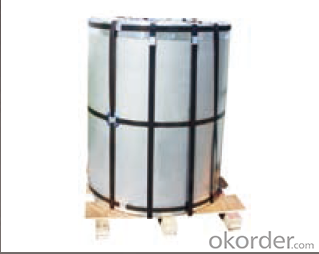
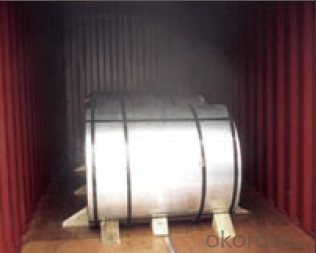
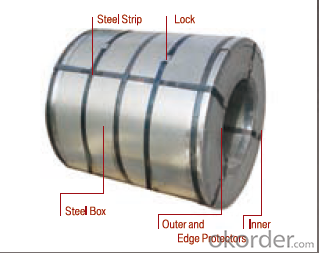
We can ensure that stable quality standards are maintained, strictly meeting both market requirements and customers’ expectations. Our products enjoy an excellent reputation and have been exported to Europe, South-America, the Middle-East, Southeast-Asia, Africa and Russia etc.. We sincerely hope to establish good and long-term business relationship with your esteemed company.
- Q: How much is the rent for a day of Larson steel sheet pile
- 400mm broad Larsen steel sheet pile rental price:9m, 12m:0.60 yuan, /m/ days15m: 0.70 yuan /m/ days18m: 0.80 yuan /m/ days
- Q: What are the different types of finishes available for steel sheets?
- There are several different types of finishes available for steel sheets, each offering unique properties and aesthetic appeal. Some of the most common finishes include: 1. Mill Finish: This is the standard finish that is achieved after the steel sheet has been manufactured. It has a rough, dull appearance, typically with visible surface imperfections. 2. Hot Rolled Finish: This finish is achieved by subjecting the steel sheet to high temperatures during the manufacturing process, resulting in a scaly, rough surface. It is commonly used for structural applications where appearance is not a primary concern. 3. Cold Rolled Finish: This finish is achieved by cold rolling the steel sheet, which smooths out the surface and creates a clean, matte appearance. It is commonly used for applications that require a smooth and uniform surface, such as automotive panels or appliances. 4. Galvanized Finish: This finish is achieved by applying a layer of zinc to the steel sheet through a process called galvanization. It provides excellent corrosion resistance and is commonly used in outdoor applications, such as roofing or fencing. 5. Electroplated Finish: This finish is achieved by electroplating a thin layer of metal, such as chromium or nickel, onto the steel sheet. It provides enhanced corrosion resistance, improved aesthetics, and can be available in various colors. 6. Powder-Coated Finish: This finish involves applying a dry powder coating onto the steel sheet and then curing it with heat. It provides a durable and attractive finish, with various color options available. Powder coating also offers excellent corrosion resistance. 7. Brushed Finish: This finish is achieved by brushing the surface of the steel sheet with an abrasive material, creating a distinctive brushed pattern. It is commonly used for decorative applications, such as architectural elements or kitchen appliances. 8. Polished Finish: This finish involves polishing the steel sheet to create a smooth and reflective surface. It is commonly used for decorative applications that require a high level of aesthetics, such as ornamental pieces or jewelry. Overall, the choice of finish for steel sheets depends on the specific requirements of the application, including factors such as durability, corrosion resistance, aesthetics, and cost.
- Q: What is the difference between a HRPO and HRSPO steel sheet?
- The main difference between a HRPO (Hot Rolled Pickled and Oiled) and HRSPO (Hot Rolled Skin Pass) steel sheet lies in the manufacturing process and the resulting properties of the two types of sheets. HRPO steel sheets are produced by hot rolling a steel slab and then subjecting it to a pickling process where the surface scale is removed using an acid bath. After pickling, the steel sheet is then oiled to provide a protective coating. The pickling process imparts a clean, smooth surface to the sheet, while the oiling helps prevent corrosion and improve formability. HRPO sheets are typically used in applications that require good surface finish and paintability. On the other hand, HRSPO steel sheets undergo an additional skin pass rolling process after pickling and oiling. This process involves passing the sheet through a set of rolls to further improve its surface quality, resulting in a smoother and more uniform surface finish compared to HRPO sheets. The skin pass process also imparts better flatness and dimensional accuracy to the sheet. HRSPO sheets are commonly used in applications that demand higher surface quality, such as automotive panels, appliances, and electrical enclosures. In summary, while both HRPO and HRSPO steel sheets are pickled and oiled, the additional skin pass rolling step in the manufacturing process of HRSPO sheets enhances their surface quality, flatness, and dimensional accuracy, making them suitable for more demanding applications.
- Q: What is the typical weight of steel sheets?
- Steel sheets come in a variety of sizes, thicknesses, and types, so their typical weights can differ. In general, the weight of steel sheets can range from a few pounds to several tons. For instance, a regular 4x8 foot steel sheet that is 1/4 inch thick weighs approximately 110 pounds, while a larger 10x10 foot sheet that is 1 inch thick can weigh over 1,000 pounds. It should be noted that these estimates are only rough guidelines, and the weight can vary depending on specific factors like the alloy composition or any coatings applied to the sheets.
- Q: Can steel sheets be used for HVAC applications?
- Yes, steel sheets can be used for HVAC (Heating, Ventilation, and Air Conditioning) applications. Steel sheets are commonly used in the construction of HVAC ductwork due to their strength, durability, and fire resistance properties. They can be easily fabricated into various shapes and sizes to meet the specific requirements of HVAC systems. Additionally, steel sheets are resistant to corrosion, which is important in HVAC applications where moisture and condensation can occur. Overall, steel sheets are a suitable material choice for HVAC applications due to their mechanical properties and ability to withstand the rigors of heating, ventilation, and air conditioning systems.
- Q: Are there any restrictions on the thickness of the steel plate, such as the minimum thickness of the steel plate?
- The information of the building is incomplete and can not be determined. The welding technical parameters will affect the welding method, welding current, welding voltage, welding environment and specifications
- Q: What is the minimum thickness of a steel sheet?
- The minimum thickness of a steel sheet depends on various factors, including the specific grade of steel being used, the intended application, and the manufacturing process. However, in general, steel sheets can be produced with thicknesses ranging from as thin as 0.4 millimeters (0.016 inches) to several millimeters thick. It is important to note that thinner steel sheets are typically used for applications that require flexibility and lightness, such as automotive body panels or electrical enclosures, while thicker sheets are employed for structural purposes, such as construction materials or heavy machinery components. Ultimately, the minimum thickness of a steel sheet is determined by the specific requirements of the project or application.
- Q: Can steel sheets be used for shipbuilding?
- Yes, steel sheets can be used for shipbuilding. Steel is a popular material choice for shipbuilding due to its strength, durability, and ability to withstand harsh marine environments. Steel sheets are commonly used to construct the hull, decks, and various structural components of ships.
- Q: What are the different fastening options for steel sheets?
- Some common fastening options for steel sheets include screws, nails, rivets, and welding. Screws are often used for attaching steel sheets to metal or wood frames, while nails are commonly used for temporary or lighter applications. Rivets provide a secure and permanent fastening method, often used in industrial or structural settings. Welding is another option, involving the fusion of steel sheets together using heat. Each fastening option has its advantages and is chosen based on the specific requirements of the application.
- Q: Can steel sheets be used for flooring or decking?
- Yes, steel sheets can be used for flooring or decking. They are often used in industrial or commercial applications due to their durability, strength, and fire resistance. Steel sheets provide a sturdy and long-lasting flooring or decking option that can withstand heavy loads and harsh environments.
Send your message to us
hot rolled steel sheet DIN 17100 in Good Quality
- Loading Port:
- Tianjin
- Payment Terms:
- TT OR LC
- Min Order Qty:
- 30 m.t.
- Supply Capability:
- 500000 m.t./month
OKorder Service Pledge
OKorder Financial Service
Similar products
Hot products
Hot Searches
Related keywords
